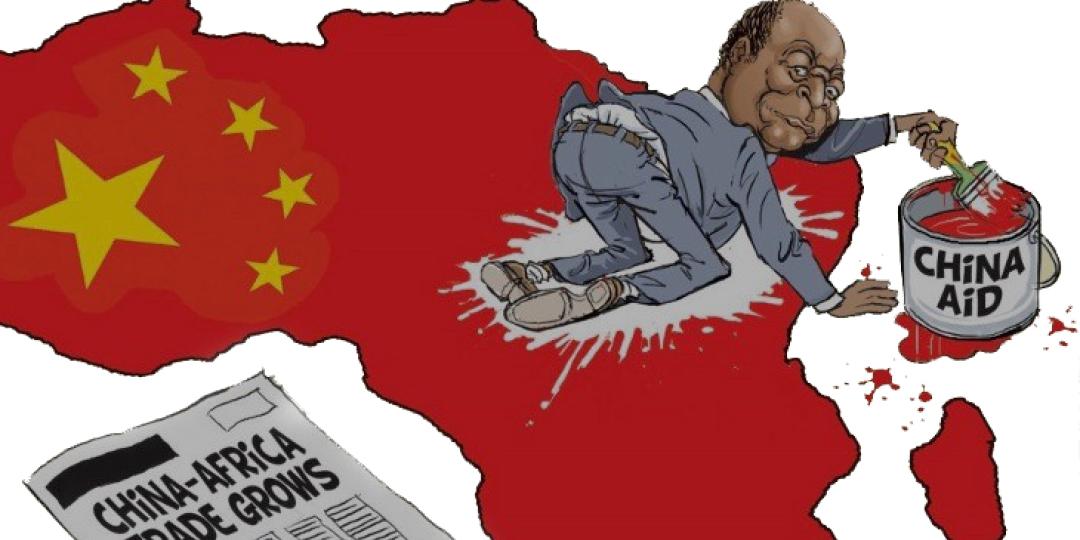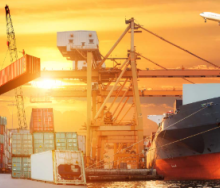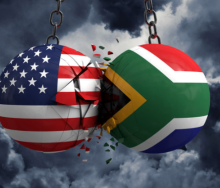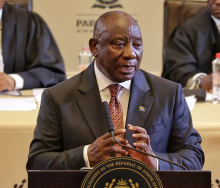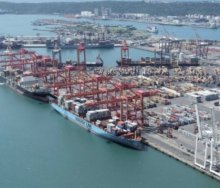The combined sum that China has invested in Africa since 2007 for infrastructural upgrades and newbuild projects amounts to more than what has been lent to the continent for the same period by the next eight investors in total – the US, France, UK, UAE, Germany, Switzerland, India and Spain.
It remains anyone’s guess though what this figure is, says Gyude Moore, senior policy fellow at the Centre for Global Development, as China “doesn’t produce reports on the money it’s lending or where it’s going."
What is known though, from data gathered by the Coalition for African Research and Innovation (CARI), is that African nations have borrowed $160 billion from China since 2000.
Angola, China’s biggest lender on the continent at $42.6bn, Ethiopia ($13.7bn), Zambia ($9.9bn), Kenya ($9bn), and Nigeria ($7.2bn) account for half that figure.
Except for Guinea-Bissau, Libya and Somalia, the latter two still struggling to emerge from war, all of Africa’s countries are deep in debt to China.
This sphere of influence through investment has been built up over more than half a century, and can be traced back to Uhuru, the period of independence that spread across Africa, causing colonial governments to tumble like dominoes.
In a documentary called “China in Africa: Should the west be worried”, British financial publication The Economist identifies the Tanzania-Zambia Railway Authority (Tazara) line as the moment China announced itself as a big spender in Africa.
Dating back to the 60s, the legendary railway line linking Kapiri Mposhi with the Port of Dar es Salaam was financed by the government of Liu Shaoqi, the immediate successor of Mao Zedong, founder of the People’s Republic of China.
For Zambia, says The Economist, China’s funding of the Tazara line came at a time of “hope and freedom”.
Meant to open trade lanes for the former British colony to the sea, “it was a monumental infrastructure project”, “the most expensive financing project that the Chinese had ever done”, adds Moore.
Wind the clock on to where Africa’s infrastructure finds itself today, thanks to China, and more than six thousand kilometres of railway track have been laid across the continent, with more still planned.
Apart from the importance of getting commodities out to the nearest ports via rail freight, China has invested in massive infrastructural projects - from road networking in Mozambique to hospitals in the Republic of the Congo and the Serowe Dam in Sudan, The Economist says.
And it’s not free, or merely based on repaying loans with interest.
The Entebbe Airport in Uganda, claims the magazine, hands over all revenue to the Chinese lender who helped pay for it. And in Angola, 61% of its oil is guaranteed to China because the country can’t pay its Chinese lenders, mostly state-owned banks.
China’s investment grip on Africa is such that many say its influence underpins the notion that the government of Xi Jinping is guilty of debt-trap diplomacy.
At a more insidious level, The Economist documentary reveals that China uses its investor influence on African governments to dictate executive decisions on a global scale.
When China cracked down on an uprising in Hong Kong in 2020, 53 countries issued a statement supporting China’s violent oppression of protests. Almost half of them were African.
Says Moore: “Africa has a voting bloc of more than 50 countries of the UN. That is a significant bloc and the Chinese have exploited this. They have used it to their advantage as best as possible.”
It is not the first time that China is being called out for using investment as a tool to ruthlessly expand control over African resources and strategic logistics.
In 2018 it became plain for all to see when China invoked a “sovereign immunity” forfeiture clause to seize the Port of Hambantota after the government of Sri Lanka defaulted on loan repayments, a step Beijing was at pains to explain away.
There is nothing untoward about laying claim to what it paid for, China has said.
But if China has nothing to hide, why doesn’t it reveal its loan agreement terms before lenders find themselves in a bind?
Says Moore: “That kind of transparency is not characteristic of the Chinese system.”
